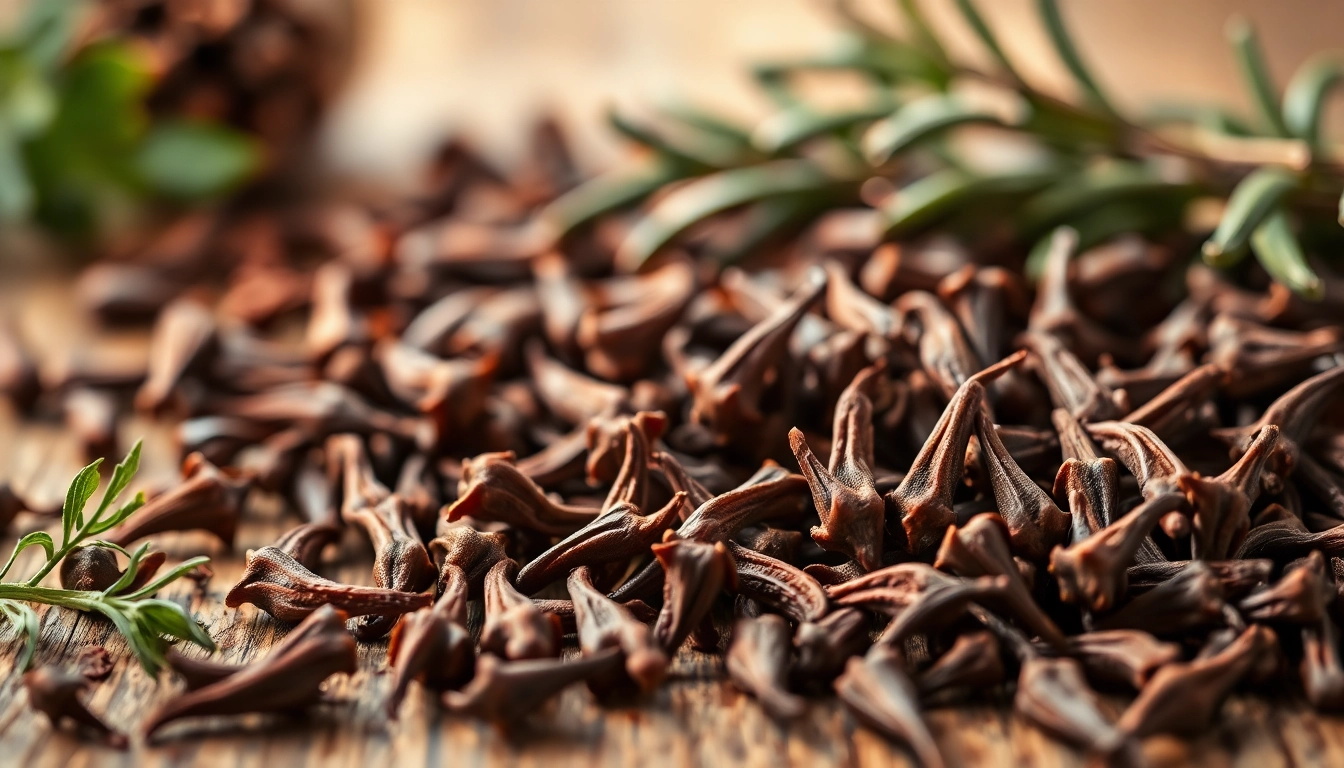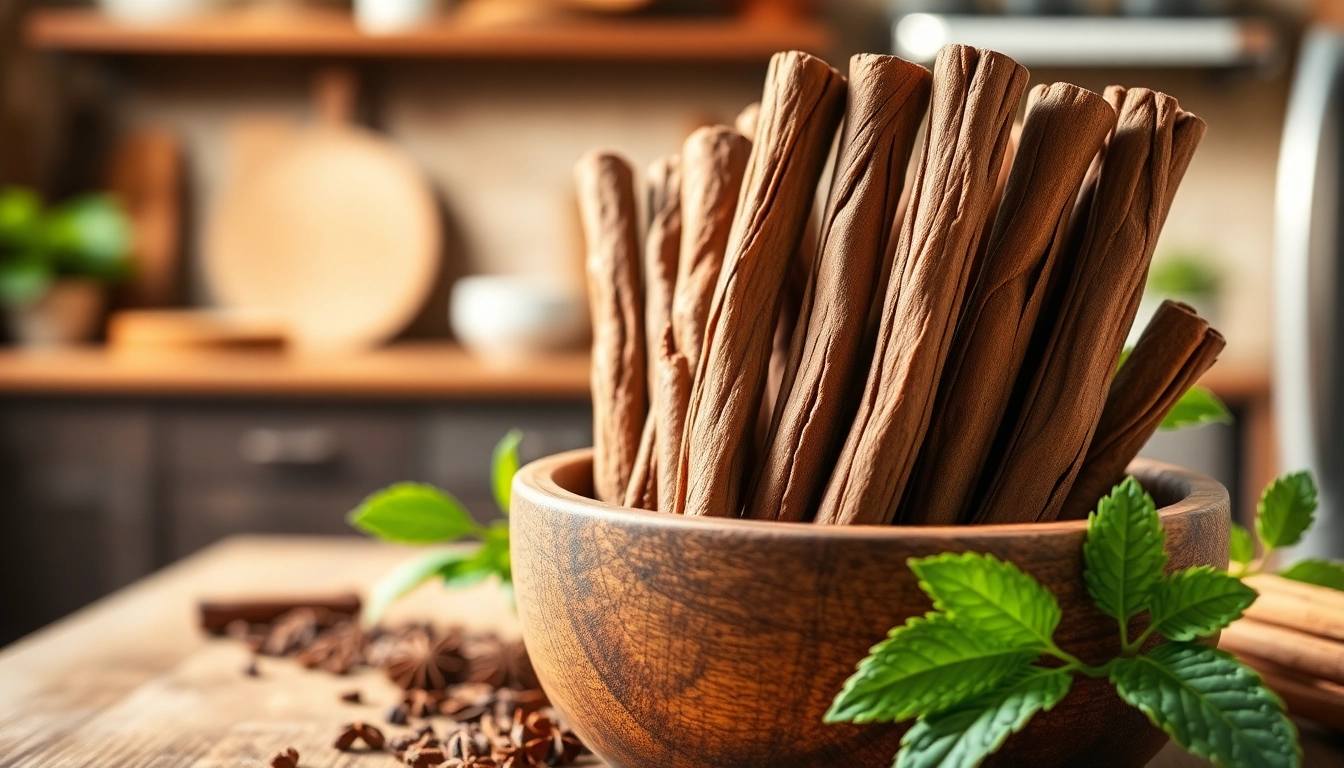Introduction to Cloves
Cloves are one of the most aromatic spices, derived from the dried flower buds of the Syzygium aromaticum tree, a member of the Myrtaceae family. Native to the Maluku Islands of Indonesia, they have captivated culinary enthusiasts and health-conscious individuals alike with their unique flavor profile and numerous health benefits. As natural flavor enhancers, cloves can elevate dishes, while their medicinal properties have transcended generations, making them an integral part of traditional medicine practices around the world. In this comprehensive article, we will delve deep into the significance of cloves, their health benefits, culinary applications, traditional uses, and tips for purchasing and storing these extraordinary spices.
What Are Cloves?
Cloves are recognized by their distinctive shape, resembling tiny nails, with a strong, pungent aroma and a warm, sweet flavor. These unopened flower buds are typically harvested when they are still immature and then dried to develop their essential oils and flavor compounds. The primary active component of cloves is eugenol, a compound that is responsible for their characteristic aroma and is known for its antifungal, antibacterial, and anti-inflammatory properties. Cloves are utilized not only in cooking but also in products such as dental care, fragrances, and even cosmetics.
Historical Significance of Cloves
The history of cloves is rich and complex. They were a highly sought-after commodity in ancient trade routes due to their rarity and value. This spice was used not only as a culinary ingredient but also for medicinal purposes, making it a coveted item among traders. Cloves were so valuable that they were exchanged for gold in some instances, and they played a crucial role in the spice trade during the Middle Ages. Their alignment with commerce and healing led to their migration across Asia, Europe, and eventually to the Americas, shaping culinary practices along the way. To this day, cloves continue to have a presence in many cultural dishes and traditional ceremonies.
Culinary Uses of Cloves
Cloves impart a depth of flavor that can be both sweet and savory. They are commonly used in spice blends, marinades, and braises, as well as in baking, where they enhance the taste of desserts like gingerbread, pumpkin pie, and fruitcakes. Their robust flavor pairs well with various ingredients, making them a versatile spice suitable for both sweet and savory dishes. Additionally, cloves are essential in many global cuisines, including Indian, Middle Eastern, and Western cooking, often used to provide complexity in flavors.
Health Benefits of Cloves
In addition to their culinary uses, cloves offer a wide array of health benefits that have been recognized for centuries. Their rich nutrient profile and high antioxidant content contribute to various aspects of health, making them a valuable addition to any diet.
Nutrients and Antioxidants in Cloves
Cloves are abundant in essential nutrients. They contain significant amounts of manganese, vitamin K, and omega-3 fatty acids, among other vitamins and minerals. Manganese, in particular, plays a crucial role in bone health, metabolism, and antioxidant defense. The antioxidants found in cloves, such as eugenol, have been shown to combat oxidative stress, which can lead to chronic diseases. These compounds help neutralize free radicals in the body, promoting overall health and wellbeing.
Cloves for Digestive Health
One of the noteworthy benefits of cloves is their supportive role in digestive health. The eugenol in cloves has been shown to promote healthy digestion, relieve gas, and reduce bloating. Furthermore, cloves can stimulate the secretion of digestive enzymes, enhancing the digestive process. Traditionally, cloves have been used in various cultures to alleviate stomach discomfort and indigestion, solidifying their status as a natural remedy.
Potential Anti-Inflammatory Properties
The anti-inflammatory properties of cloves can also play a vital role in reducing the risk of chronic conditions. Studies have suggested that clove oil can help mitigate inflammation in the body and potentially reduce pain associated with inflammatory conditions. The application of clove oil has been historically used for dental pain due to its natural analgesic properties, providing relief from toothaches and gum discomfort.
How to Use Cloves in Cooking
Incorporating cloves into your cooking can enhance flavor profiles and provide health benefits. Understanding how to use this spice efficiently can yield delightful dishes that fully exploit its distinctive taste.
Recipes Featuring Cloves
Cloves can be utilized in a variety of recipes, ranging from savory to sweet. Here are a few popular applications:
- Gingerbread Cookies: Ground cloves are a staple in gingerbread cookie recipes, providing warmth and depth to the sweetness of the cookies.
- Spiced Mulled Wine: Adding whole cloves to mulled wine provides a festive aroma and flavor that pairs beautifully with other warm spices.
- Curry Dishes: In Indian cuisine, cloves are often part of garam masala, lending a rich flavor to curries and stews.
- Roasted Vegetables: Incorporate ground cloves into a spice rub for roasted vegetables, enhancing their natural sweetness with a unique flavor.
Pairing Cloves with Other Ingredients
Cloves complement a range of ingredients, making them perfect for blending in recipes. Some effective pairings include:
- Fruits: Cloves pair well with apples, pears, and oranges, adding depth to fruit salads and desserts.
- Poultry and Meats: The strong flavor profile of cloves enhances the taste of meats, especially in marinades and stews.
- Spices: Cloves can effectively enhance other spices, such as cinnamon, nutmeg, and ginger, in both sweet and savory dishes.
Preservation Techniques Using Cloves
Cloves are also known for their preservative qualities due to their antifungal and antibacterial properties. They can be used in pickling solutions and brines to enhance flavor and extend shelf life. When preserved with cloves, fruits and vegetables often take on a spicy complexity, elevating their profiles.
Cloves in Traditional Medicine
Cloves have been used in traditional medicine practices for centuries across multiple cultures. Their medicinal properties are attributed to their bioactive compounds, particularly eugenol.
Recipes from Around the World
Here are some traditional recipes that highlight the use of cloves in various cultural practices:
- Clove Tea: Clove-infused tea is a soothing drink that aids digestion and offers relief from colds.
- Traditional Spice Mixes: In many Indian households, cloves are included in spice blends, such as garam masala, for cooking and medicinal purposes.
- Clove Oil: Used for topical applications, clove oil can relieve muscle aches and improve circulation when diluted and massaged.
Healing Properties of Cloves
Research has shown that cloves possess various healing properties, including anti-inflammatory, antimicrobial, and analgesic effects. They can be used to mitigate pain, reduce inflammation in the body, and boost overall immunity. The versatility of cloves in promoting health and wellness makes them invaluable in both culinary and medicinal applications.
Precautions When Using Cloves
While cloves are generally safe for most people, there are some precautions to consider. Clove oil, when used in high concentrations, can be irritating and should be used carefully. People with bleeding disorders or those on anticoagulant medications should consult healthcare providers before using clove supplements or oils, as cloves may interfere with blood clotting. Additionally, pregnant or breastfeeding women should consult with a healthcare professional prior to using cloves in significant amounts.
Buying and Storing Cloves
Choosing high-quality cloves and storing them properly can significantly affect their flavor and health benefits. Here are some tips on how to purchase and maintain the freshness of this precious spice.
How to Choose Quality Cloves
When selecting cloves, look for the ones that are dark brown in color and have a strong, aromatic fragrance. Whole cloves should be hard, with no signs of moisture or mold. It is advisable to buy whole cloves over ground ones, as they retain their flavor longer. Always consider sourcing from reputable suppliers who provide information on the origin and quality of their products.
Storage Tips for Freshness
To preserve the potency of cloves for extended periods:
- Keep them airtight: Store cloves in an airtight container to prevent moisture and air exposure, which can lead to loss of flavor.
- Avoid sunlight: Place the container in a cool, dark place to protect cloves from heat and light, which can degrade their quality.
- Use within a year: For optimal flavor, consider using whole cloves within a year of purchase, and ground cloves within six months.
Common Mistakes While Using Cloves
Many culinary enthusiasts might make common mistakes when using cloves. Here are a few to avoid:
- Overusing Cloves: Given their strong flavor, it’s easy to overpower dishes with too many cloves. Start with small amounts and adjust as needed.
- Neglecting Whole Cloves: Ground cloves may seem more convenient, but whole cloves provide longer-lasting flavor and retain their aromatic oils better.
- Inadequate Pairings: Failing to balance the strong flavor of cloves with complementary ingredients can lead to unbalanced dishes.
Conclusion
Cloves stand out not only for their rich flavor and versatility in cooking but also for their impressive profile of health benefits. The combination of unique culinary uses, medicinal properties, and historical significance makes cloves an essential spice worth incorporating into daily life. Whether you are enhancing your recipes or benefiting from their health-promoting attributes, embracing cloves truly elevates both your culinary experience and overall well-being.




